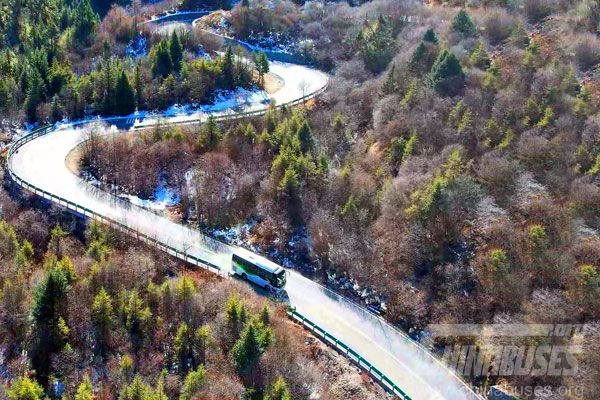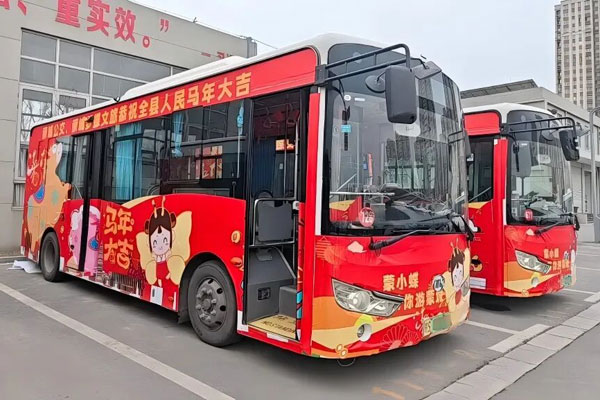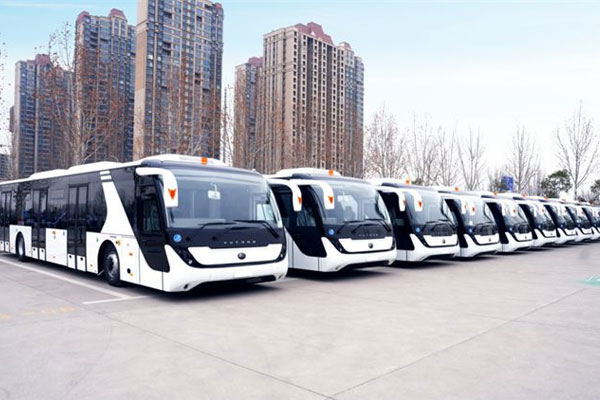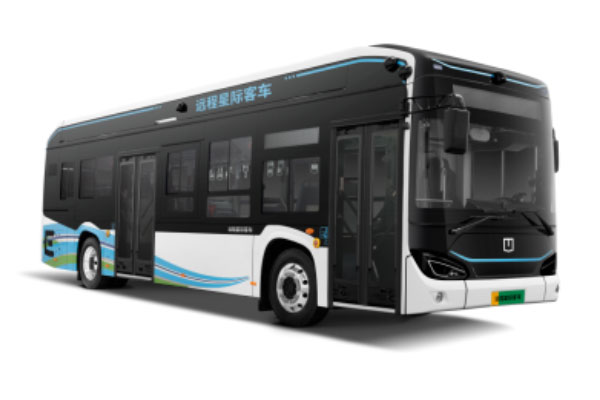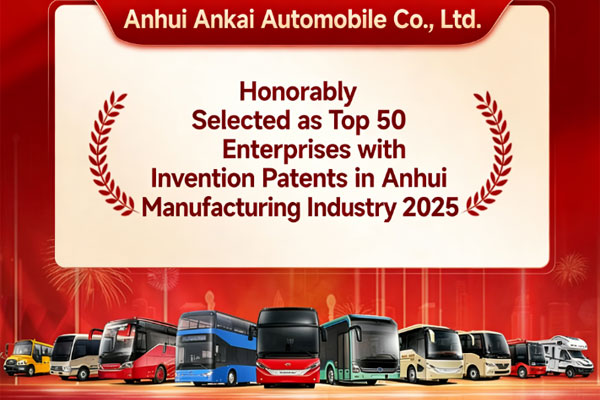JAC Group's Technology Open Day Showcases Ankai Bus's Core Technological Achievements
22 May 2024
In 2024, JAC Group celebrated its 60th anniversary. On May 18, 2024, JAC Group's Technology Open Day was officially kicked off in Hefei City, inviting media, users, and the public to deeply experience its leading technical strength in the field of intelligence and witness the group's focus on user needs under the guidance of a new brand strategy, exploring the infinite possibilities of intelligent vehicles in the future.
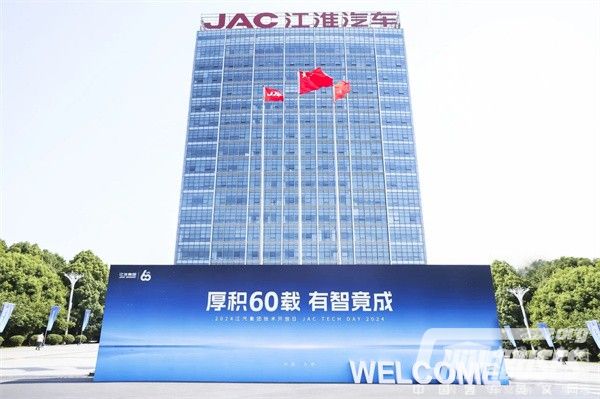
The three-day event featured the environmentally friendly and technological charm of the Ankai E9 hydrogen fuel cell bus in the "Extreme Intelligence" product appreciation area, while the Ankai self-driving bus attracted numerous fans in the "Extreme Intelligence" experience area, jointly renewing wonderful travel solutions with green and smart technology.
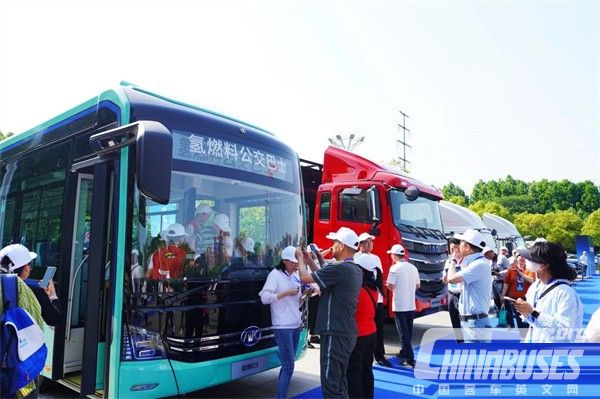
In recent years, with the vigorous development of a new round of technological revolution and industrial transformation, automobiles have accelerated integration with energy, transportation, information and communication technologies. As an independent bus brand, Ankai Bus has bravely stood at the forefront, actively promoting product high-end, intelligent, and green transformation, and "accelerating to overtake" on the new track.
At the Technology Open Day, the Ankai E9 hydrogen fuel cell bus showed its strength. More than ten years ago, Ankai Bus invested in the hydrogen energy sector with leading technology, developing multiple hydrogen fuel cell buses to help build China's "hydrogen" business card.
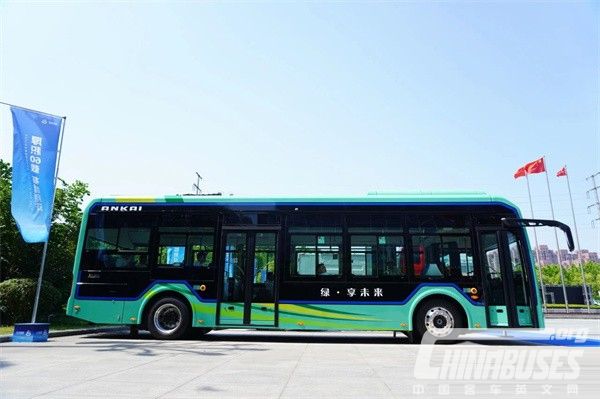
The E9 hydrogen fuel cell bus on display integrates Ankai's new energy core technology. The vehicle is designed based on the concepts of platformization, lightweight, integration, intelligence, and low hydrogen consumption. It adopts a full low-floor structure, providing open space and easy access. Equipped with safety technologies such as electronic parking brake, intelligent drive anti-slip adjustment system, active safety collision avoidance system (ADAS), and 360-degree panoramic system, it can fully ensure the smooth operation of the vehicle and meet the needs of various application scenarios.
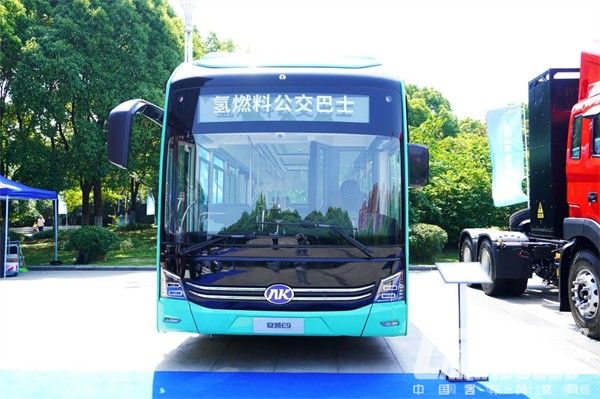
At the same time, the vehicle adopts a high-power fuel cell system and an efficient wheel-side drive system, with a hydrogen refueling time of 10 minutes and a driving range of over 300 kilometers when fully loaded and with the air conditioner on. It has many advantages such as high efficiency, low energy consumption, strong power, long driving range, short refueling time, strong environmental adaptability, and large passenger capacity, which can truly achieve environmental protection and efficiency.
Currently, Ankai Bus has completed the development of 8-12 meter hydrogen fuel cell product series, which have been successively launched in Lu'an, Hefei and other cities in Anhui Province. With a single-vehicle operating mileage of over 250,000 kilometers, they have excellent performance in power, economy, and comfort, providing an important driving force for the popularization and application of hydrogen fuel cell buses and the construction of a new energy system.
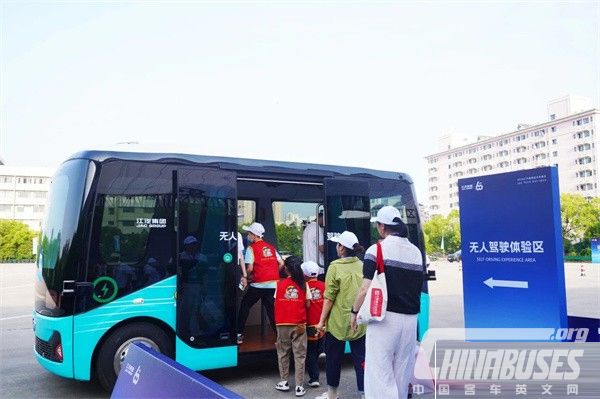
This year, terms such as "Artificial Intelligence +", new productive forces, new consumption, large models, and big data have attracted widespread attention in society. As a cutting-edge technological field in the automotive industry, autonomous driving is relying on the accelerated iteration and updating of related technologies and products in the upstream and downstream of the industry chain to quickly step into reality.
At the event, Ankai's L4-level intelligent connected self-driving bus "melted" the audience and attracted media, users, and the public to try it out. This self-driving bus has rounded lines and is cute and small. There is no cockpit or steering wheel inside the car. Equipped with fashionable and avant-garde ring LED headlights and floor-to-ceiling front and rear glass, the visual impact is maximized, making it the "coolest guy" in the venue.
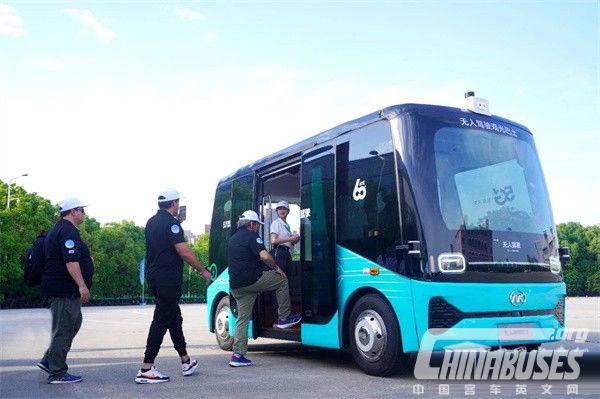
The vehicle is equipped with various on-board sensors such as LiDAR, millimeter-wave radar, cameras, and DGPS, which endow it with capabilities such as high-precision positioning, environmental awareness, navigation and obstacle avoidance, and vehicle control. It can be applied to multiple scenarios such as enterprises, communities, business districts, scenic spots, and parks.
In September 2023, the Ankai self-driving bus was put into operation at Hefei Luogang Park. So far, its operating mileage has exceeded 16,000 kilometers, truly realizing the commercial operation of autonomous driving technology. It has become a beautiful business card for Hefei, a "city of science and technology innovation", to show to the outside world, and it also allows citizens and tourists to experience the charm of technology.
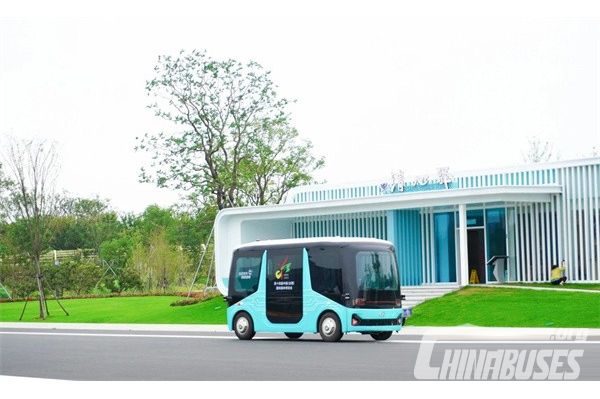
In fact, as a "pioneer" in the field of commercial vehicle autonomous driving, in 2017, Ankai's self-driving bus was tested in Shenzhen, becoming the world's first self-driving bus tested on public roads; in 2020, Ankai's self-driving bus was put into the first 5G open road demonstration line for autonomous driving in Anhui Province; in 2022, Ankai's L4 self-driving bus was operated on public roads in Baohe Economic Development Zone, Hefei, becoming the first self-driving bus line in the province.
As a pioneer in developing new productive forces, Ankai Bus will drive product innovation through technological upgrades, continue to strengthen the strategic layout in the field of intelligent new energy, provide users with a new experience of "safer, more comfortable, greener, and smarter" wonderful travel, and lead Chinese buses to leap into the road of high-quality development.
Source : www.chinabuses.org
Editor : Lucy
Views:7416



